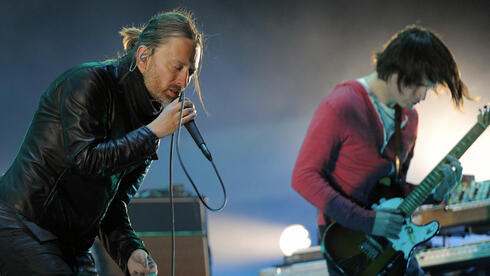Radiohead front man Thom Yorke announced he has no plans to return to Israel. “I don’t want to go within 5,000 miles of Netanyahu’s government,” he said in an interview to The Times.
According to legend, Radiohead’s first major international breakthrough began in Israel, where the then-unknown British band arrived in the early 1990s and was met with great enthusiasm. Since then, the group has become one of the most acclaimed in the world, maintaining deep appreciation for its Israeli fan base and returning for several performances over the years.
4 View gallery
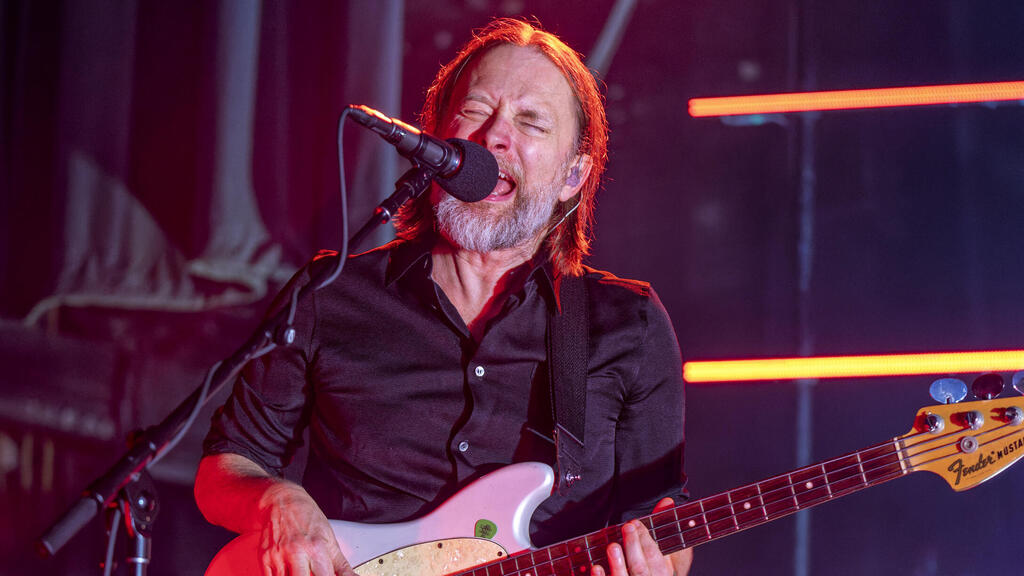

Guitarist Jonny Greenwood even lived in Israel for extended periods after falling in love with artist Sharon Katam, with whom he built a family there.
However, in a joint interview with Greenwood, Yorke said that due to recent events and the backlash he has faced over past shows in Tel Aviv, he has decided not to perform in Israel again. Still, he rejected calls to cut ties with his close friend Greenwood, who remains deeply connected to the country and its music scene.
4 View gallery
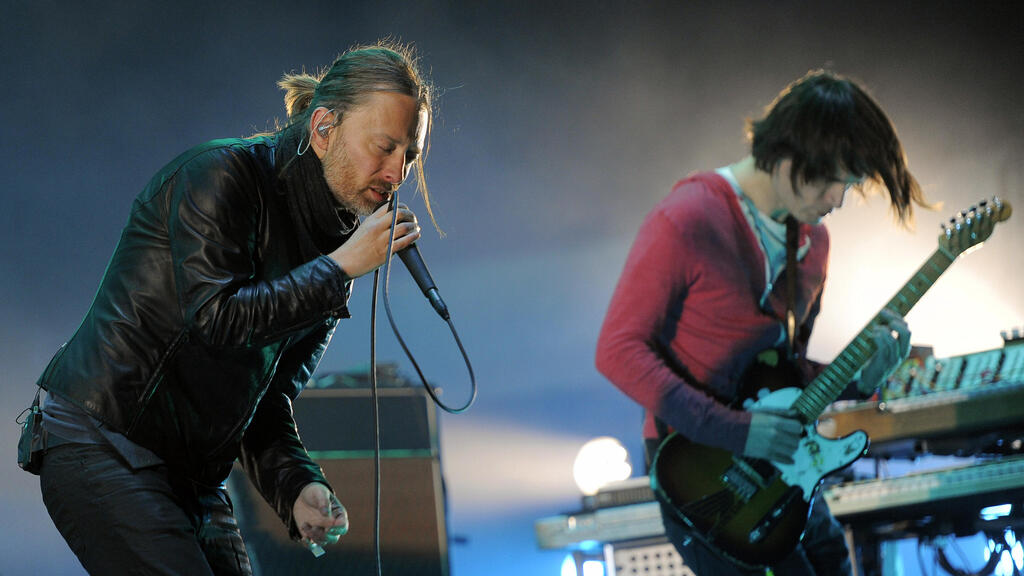

“I don’t want to go within 5,000 miles of Netanyahu’s government, but Jonny has roots there, so I understand,” Yorke said when asked if he planned to return. He recalled his unpleasant experience performing in Tel Aviv in 2017, despite pressure from the BDS movement to cancel the concert.
“I was at the hotel when a guy, clearly well connected, approached me and thanked me. That really freaked me out,” Yorke said. “The show was hijacked. I understand the calls for a boycott, sort of. At the time, I thought the performance was fine, but once that guy spoke to me, I just wanted to leave.”
Greenwood, in contrast, has neither left nor intends to. His family ties and ongoing collaborations with local musicians, especially with Israeli artist Dudu Tassa, keep him connected. Together, they released the album Jarak Qaribak in 2023, blending influences from across the Arab world.
Despite their intentions, their planned UK tour has faced protests from pro-Palestinian activists, leading to cancellations in Bristol and London. Still, Greenwood continues to work with Israeli and Arab artists.
4 View gallery
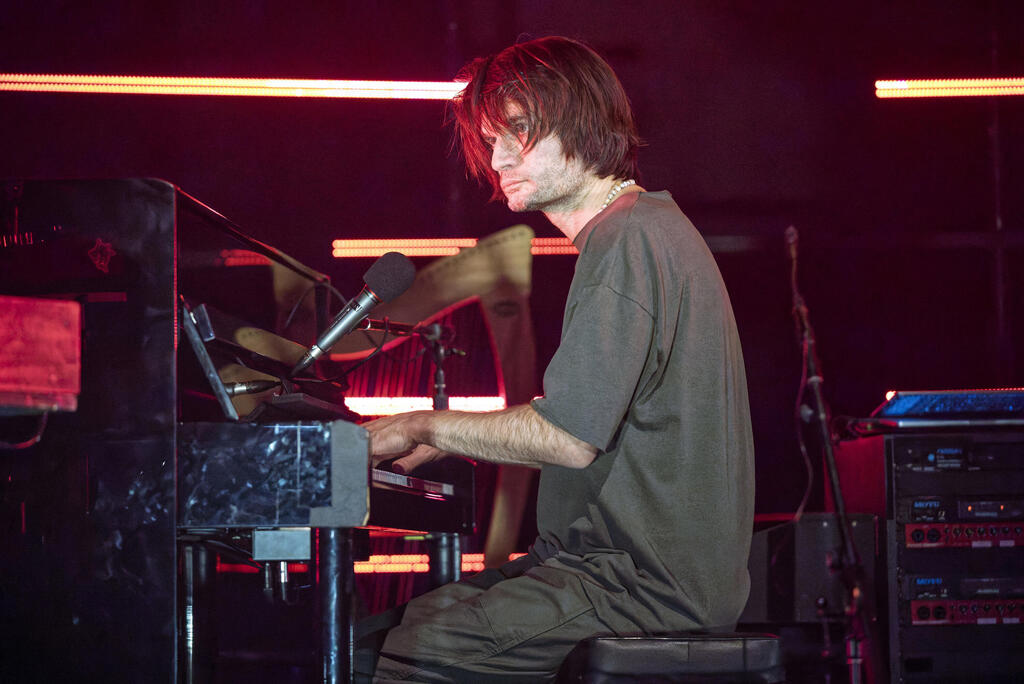

Jonny Greenwood
(Photoi: Rob Grabowski/Invision/AP)
“I politely disagree with Thom,” Greenwood said. “I think the government will use the boycott to say, ‘Everyone hates us, so we’ll do whatever we want.’ That’s far more dangerous. It’s crazy. The only thing I regret is dragging Thom and others into this mess. But I don’t regret working with Arab and Jewish musicians. I can’t apologize for that.”
The acclaimed guitarist, also known for his collaborations with American filmmaker Paul Thomas Anderson, emphasized that he too opposes Netanyahu’s government but believes it does not represent the Israeli public or local artists.
“Sometimes people call my work meaningless or naïve, and I get that,” Greenwood said. “But when my collaborations are described as evil, that’s wrong. I’ve protested against the government, seen stickers everywhere saying ‘F*** Ben Gvir.’ I’ve spent a lot of time in Israel with my family. I can’t say, ‘I won’t make music with you because of the government.’ That doesn’t make sense. I have no loyalty or respect for their government, but I do for the artists born there.”
Unfortunately, the political climate continues to cast a shadow over Yorke and Greenwood’s joint tour. Both say they feel growing pressure from boycott movements. “They don’t care about us,” Yorke said. “It’s all about sharing dramatic stuff on Instagram. I don’t think Israel should be in Eurovision, but I also don’t think Eurovision should exist at all, so what do I know?”
Despite their criticism of Eurovision, both musicians also expressed frustration with anti-Israel activists. Yorke recalled his own activism for environmental legislation in Britain. “I spent two weeks obsessively reading about it,” he said. “I mention it because nowadays you don’t need to be an expert. You just need to have the right opinion and keep repeating it.”
4 View gallery
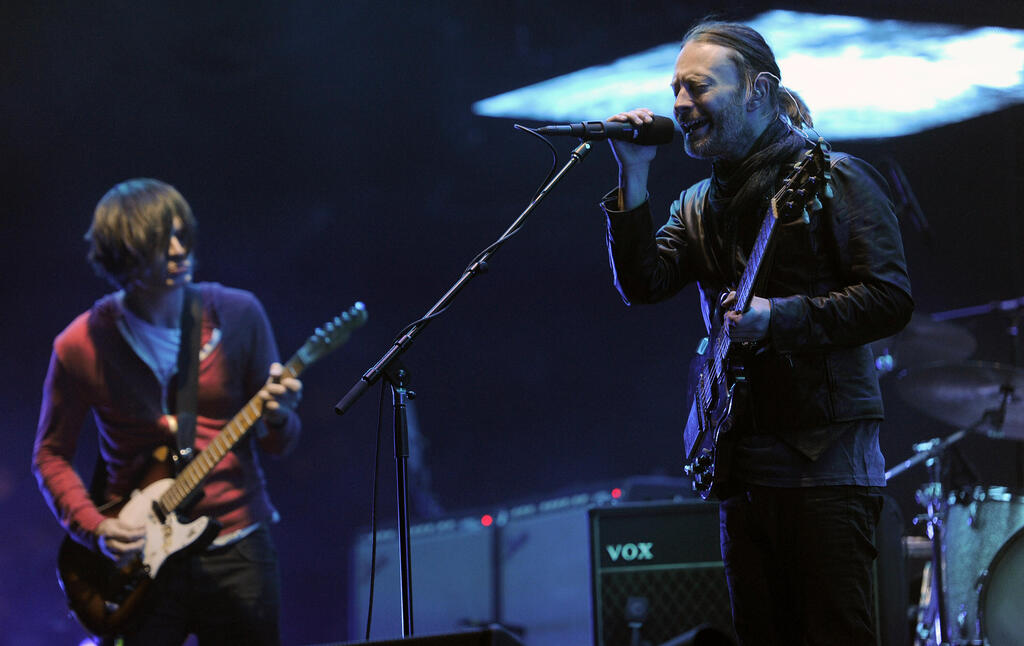

Greenwood agreed, saying that dynamic now defines much of the political left. “On the left, people look for traitors. On the right, for realists. It’s depressing that we’re as close as they can get to balance,” he said, lamenting the attacks he faces for trying to foster coexistence through music. “It’s crazy that I feel scared to admit that, even though it still feels progressive to me. Booing at a concert doesn’t strike me as brave or progressive.”
During the interview, Yorke jokingly pointed at Greenwood and said sarcastically, “You’re whitewashing murder, mate. And apparently I am too, just for sitting next to you.” But he admitted the situation weighs heavily on him. “It keeps me up at night,” Yorke said. “Activists tell me what I’ve done with my life, what I should do next, and that my own thoughts don’t matter. They want to erase what I’ve created, something that means a lot to millions of people. But they can’t take that away from me. I don’t see myself as a bad person.”
He illustrated how such tensions have become routine, describing a recent encounter with a fan who confronted him not just about his silence on politics, but about his friendship with Greenwood.
“Lately people have shouted ‘Free Palestine’ at me on the street,” Yorke said. “One guy told me, ‘You have a platform, you must cut ties with Jonny.’ And I told him, ‘You and I are standing here in London shouting at each other while the real criminals, who should be in The Hague, are laughing at us and manipulating us online while they keep killing people.’ It’s a performance of powerlessness. It’s a purity test, like Arthur Miller’s The Crucible at its worst. I respect the outrage, but it’s strange to be the one taking the hits.”
